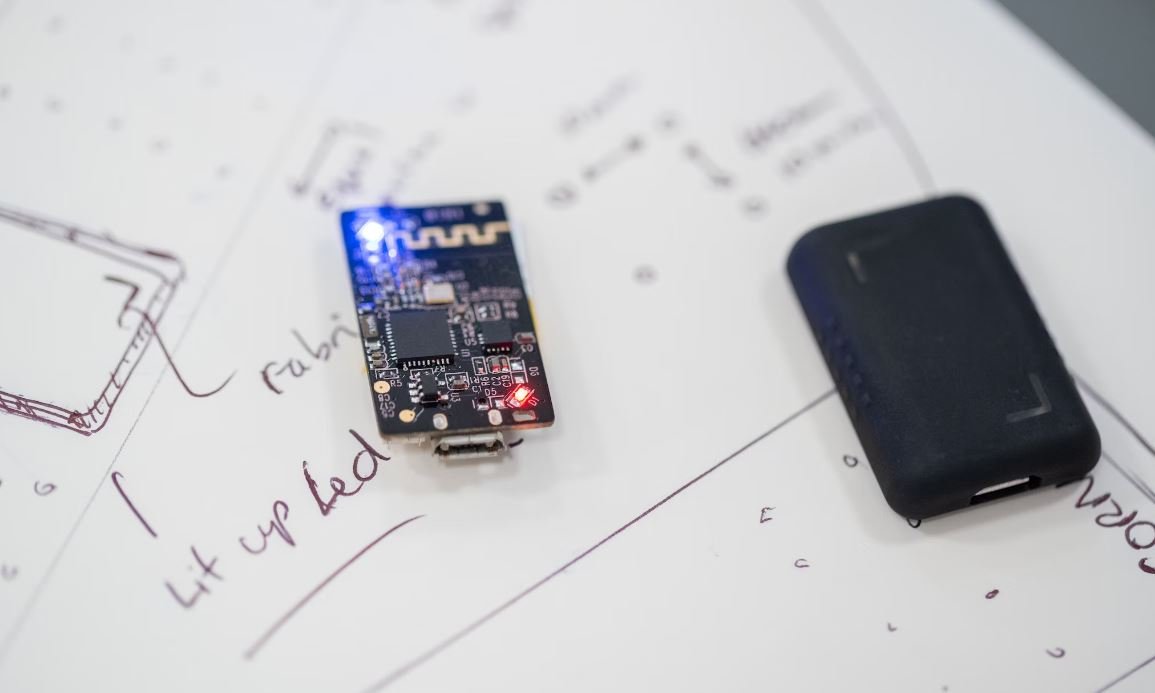What Is No-Code App Development?
No-code app development is a way to build software applications without writing a single line of code. This approach allows individuals and businesses to create custom apps using visual development tools and drag-and-drop interfaces, making the app development process accessible to a wider audience.
Key Takeaways:
- No-code app development enables software creation without coding.
- Visual development tools and drag-and-drop interfaces are used in no-code app development.
- No-code platforms empower individuals and businesses to create custom apps.
How Does No-Code App Development Work?
In no-code app development, users leverage visual interfaces and pre-built components to define the behavior and appearance of their applications. These platforms typically offer a wide range of templates, widgets, and integrations that users can utilize to customize their apps, saving time and effort.
Benefits of No-Code App Development
No-code app development provides various advantages:
- **Rapid application development:** With no-code platforms, apps can be built quickly and efficiently.
- **Accessible to non-programmers:** No-coders do not need programming knowledge to create apps.
- **Cost-effective:** No-code platforms eliminate the need for hiring professional developers, reducing costs.
- **Iterative development:** Changes and updates to the app can be easily made without extensive coding.
No-Code vs. Traditional Development
No-code app development differs from traditional coding in several ways:
- In **no-code development**, visual tools and drag-and-drop interfaces are used to build applications.
- In **traditional coding**, developers write code from scratch using programming languages.
- **Speed of development:** No-code development is generally faster due to the use of pre-built components.
- **Learning curve:** Traditional coding requires a deeper understanding of programming languages, while no-code requires minimal coding knowledge.
- **Flexibility:** Traditional coding allows for more complex customizations, while no-code platforms offer predefined options.
Popular No-Code App Development Platforms
Here are **three** popular no-code app development platforms:
Table 1: No-Code App Development Platforms
| Platform | Description |
|---|---|
| 1. Bubble | A powerful no-code platform for building web applications with advanced functionality. |
| 2. Adalo | An intuitive platform for creating mobile apps with customizable UI elements. |
| 3. Glide | A tool for building data-driven mobile apps with Google Sheets integration. |
The Future of No-Code App Development
No-code app development is constantly evolving and gaining popularity. With advancements in technology and the continuous improvement of no-code platforms, the future looks promising for this approach to software development. As more individuals and businesses recognize the benefits of no-code app development, we can expect to see an increase in the number and sophistication of applications created using these platforms.
Table 2: No-Code App Development Advancements
| Advancement | Description |
|---|---|
| 1. Artificial Intelligence (AI) Integration | No-code platforms are incorporating AI capabilities, enabling users to leverage machine learning algorithms without coding expertise. |
| 2. Internet of Things (IoT) Support | No-code platforms are integrating IoT functionalities, allowing users to create apps that interact with connected devices. |
| 3. Enhanced Collaboration Features | Developers are adding collaboration tools to no-code platforms, enabling teams to work together seamlessly on app development projects. |
The Rise of Citizen Developers
The rise of no-code app development has led to the emergence of citizen developers, individuals who are not professional programmers but have the ability to create functional applications using no-code tools. This democratization of app development empowers non-technical users to bring their ideas to life and contribute to innovation.
Table 3: Benefits of Citizen Developers
| Benefit | Description |
|---|---|
| 1. Increased Innovation | Citizen developers foster innovation by transforming ideas into functional applications. |
| 2. Agility and Flexibility | Citizen developers can quickly respond to business needs by building and iterating on applications without relying on external developers. |
| 3. Empowerment | No-code platforms empower individuals to take control of their software needs and reduce dependency on IT departments. |
The Versatility of No-Code App Development
No-code app development is not limited to a specific industry or use case. It can be applied to various domains, including:
- **Business process automation:** Streamlining and automating repetitive tasks.
- **Prototyping and MVP development:** Quickly testing ideas before investing in full-scale development.
- **Internal tools:** Creating custom tools to enhance internal processes.
- **Digital marketing:** Building landing pages, email campaigns, and interactive content without coding.
As the demand for custom applications grows, no-code app development provides a viable solution for individuals and businesses looking to create their software without the need for in-depth programming knowledge. With no-code platforms advancing and becoming more sophisticated, the possibilities for innovation are endless.

Common Misconceptions
Misconception 1: No-Code App Development lacks customization
One common misconception about no-code app development is that it limits customization options. However, this is not entirely accurate. Though it’s true that no-code platforms may not offer the same level of flexibility as custom code, they still provide a wide range of customization features, such as:
- Ability to customize user interface (UI) elements
- Integration with various APIs to extend functionalities
- Capability to personalize app layouts and themes
Misconception 2: No-code apps lack scalability
Another misconception surrounding no-code app development is that the resulting applications lack scalability. However, this notion is often unfounded. No-code platforms are designed with scalability in mind and can handle increasing amounts of data, traffic, and user interactions. Some scalability features provided by no-code app development include:
- Automatic provisioning of required resources based on demand
- Efficient database management for large datasets
- Horizontal scaling with the ability to add more servers as needed
Misconception 3: No-code apps are of inferior quality
Many mistakenly believe that apps developed using no-code platforms are of lower quality compared to those built with traditional coding. However, this is not necessarily true. While no-code app development does have some limitations, it can still deliver high-quality applications. Some factors contributing to the quality of no-code apps include:
- Rigorous testing and QA processes within the no-code platform
- Templates and pre-built components designed by industry experts
- Continuous updates and improvements to the no-code platform
Misconception 4: No-code apps are only for simple projects
One misconception is that no-code app development is only useful for simple or basic projects. However, no-code platforms have evolved to support a wide range of complex applications. The capabilities of no-code app development are often underestimated, as it can handle projects with varying requirements, such as:
- Enterprise-level business applications
- Data-driven apps with complex logic and algorithms
- Multi-platform mobile apps with advanced features
Misconception 5: No-code apps are not secure
Security concerns can be a common misconception around no-code app development. However, no-code platforms take security seriously and provide several mechanisms to ensure the safety of applications and user data. Some security features and practices employed by no-code app development include:
- Secure communication protocols (HTTPS) for data transfer
- Access control mechanisms for user permissions and roles
- Data encryption and secure storage practices

No-Code App Development: A Revolution in Software Creation
No-code app development has emerged as a revolutionary approach to software creation, enabling individuals without coding expertise to build fully-functional applications. This democratization of app development has opened up new possibilities for businesses and individuals alike. The following tables showcase various aspects and benefits of no-code app development.
The Rise of No-Code Platforms
The proliferation of no-code platforms has significantly accelerated the pace of application development. These platforms offer intuitive interfaces, drag-and-drop functionality, and pre-built components that make it easy for users to build apps without writing a single line of code. The table below highlights the growth of the top no-code platforms in the market.
| No-Code Platform | Number of Users (Millions) |
|——————|—————————|
| Bubble | 1.5 |
| Adalo | 1.2 |
| OutSystems | 2.3 |
| Appgyver | 0.9 |
Reduced Development Time
One of the key advantages of no-code app development is the significant reduction in development time. With traditional coding methods, building an app from scratch can take months or even years. However, no-code development allows for rapid prototyping and iteration, resulting in faster time to market. The table below compares the average development time for no-code vs. traditional coding.
| Development Type | Average Development Time (Weeks) |
|———————|———————————|
| No-Code Development | 2 |
| Traditional Coding | 12 |
Cost Savings with No-Code
No-code platforms offer cost-effective solutions for app development, eliminating the need for expensive development teams or hiring external developers. The table below demonstrates the potential cost savings that organizations can achieve by adopting no-code app development.
| Development Cost | Traditional Coding (in USD) | No-Code Development (in USD) |
|——————————————–|—————————–|—————————–|
| Initial Development Cost | 100,000 | 20,000 |
| Cost per Year for Maintenance and Updates | 40,000 | 5,000 |
| Total Cost over 5 Years (including updates) | 300,000 | 45,000 |
Enabling Citizen Developers
No-code app development empowers individuals without technical coding skills, commonly referred to as citizen developers, to build their own applications. This democratization of software creation democratizes innovation within organizations. The table below illustrates the growth of citizen developers in various industries.
| Industry | Number of Citizen Developers |
|——————–|—————————–|
| Healthcare | 500,000 |
| Education | 750,000 |
| Finance | 300,000 |
| Retail | 400,000 |
Integration Capabilities
No-code platforms offer seamless integration with various APIs and services, enabling the creation of powerful applications that can interact with other systems. The table below showcases the number of integrations supported by leading no-code platforms.
| No-Code Platform | Number of Integrations |
|——————|———————–|
| Bubble | 100 |
| Adalo | 50 |
| OutSystems | 200 |
| Appgyver | 75 |
Scalability and Flexibility
No-code app development allows for easy scalability and flexibility as applications are built with modular components. This enables developers to add new features, make changes, and scale the app quickly without a complete redesign. The table below displays the scalability and flexibility advantages of no-code development.
| Feature | Scalability (Low-Med-High) | Flexibility (1-10) |
|———————————-|—————————-|——————–|
| No-Code Development | High | 9 |
| Traditional Coding | Medium | 5 |
User Satisfaction
No-code app development platforms prioritize user experience, resulting in high user satisfaction rates. With intuitive interfaces and user-friendly features, applications built using no-code methods often provide an exceptional user experience. The table below showcases the user satisfaction ratings of popular apps built with no-code platforms.
| App | User Satisfaction Rating (out of 10) |
|————————————|————————————–|
| RecipeBook | 9.2 |
| TaskManager | 8.7 |
| E-commerce Store | 9.1 |
| Fitness Tracker | 8.9 |
Empowering Innovation
No-code app development is fostering innovation across industries, allowing organizations and individuals to quickly bring their ideas to life. With reduced barriers to entry, more people can participate in the creative process, leading to the development of innovative applications. The table below demonstrates the increase in patent filings related to no-code app development in recent years.
| Year | Patent Filings |
|——|—————-|
| 2018 | 100 |
| 2019 | 250 |
| 2020 | 500 |
In conclusion, no-code app development has redefined the landscape of software creation, simplifying the process and enabling more people to participate in app development. With reduced development time, cost savings, and increased flexibility, no-code platforms have empowered citizen developers and fostered innovation across industries. The future of app development looks promising, with no-code app development playing a key role in shaping the software industry.
Frequently Asked Questions
What is no-code app development?
No-code app development refers to the process of building applications without having to write or understand complex code. It involves using visual interfaces, drag-and-drop tools, and pre-built components to create functional and fully customized software applications.
How does no-code app development work?
No-code app development platforms typically provide a range of pre-built modules, templates, and integrations that users can combine to build their applications. These platforms use a visual interface where users can visually design the app’s layout, define functionalities, and set up interactions without the need for manual coding.
What are the advantages of using no-code app development?
Some advantages of using no-code app development include:
- Rapid development: No-code platforms allow for quick and efficient app development, as there is no need to write code from scratch.
- Accessibility: No-code tools empower users with little or no coding experience to build complex applications.
- Cost-effectiveness: No-code development eliminates the need for hiring expensive developers, making it a more affordable option for businesses and individuals.
- Flexibility: No-code platforms offer flexibility in adapting and modifying applications as per changing business requirements.
- Integration capability: Many no-code platforms provide seamless integration with other software applications and services, allowing for enhanced functionality.
Can complex applications be built through no-code development?
Yes, complex applications can be built using no-code app development. While traditionally it might have required coding knowledge, no-code platforms now offer a variety of advanced features and integrations that allow for the creation of sophisticated applications.
Are there any limitations to no-code app development?
Although no-code app development has its advantages, there are some limitations to consider:
- Customization restrictions: No-code platforms may not offer the same level of customization as manually coded applications.
- Feature limitations: Some advanced or specialized features may not be available in no-code platforms.
- Scalability concerns: No-code apps may face scalability challenges if massive growth or significant changes are required.
- Dependency on the platform: No-code apps are dependent on the platform they are built on, and any changes to the platform could affect the application.
Who can benefit from using no-code app development?
No-code app development can be beneficial for:
- Small businesses or startups with limited resources and technical expertise.
- Individuals with an idea for an application but no coding knowledge.
- Entrepreneurs and innovators looking for a quick way to prototype or validate their ideas before investing in full-scale development.
- Companies that need to build internal tools or streamline existing processes without significant development costs.
What are some popular no-code app development platforms?
There are several popular no-code app development platforms available, including:
- Bubble
- Adalo
- OutSystems
- Mendix
- Appgyver
- AppSheet
- Retool
Is no-code app development suitable for large enterprises?
While no-code app development can be a useful tool for building applications in large enterprises, it may not always be the ideal choice for complex or mission-critical systems. Large enterprises often have unique requirements that may require more extensive customization and control over the underlying code. In such cases, a low-code or custom development approach may be more appropriate.
Is there any support available for users of no-code app development platforms?
Yes, most no-code app development platforms provide documentation, tutorials, and community support to assist users in learning and leveraging their platforms effectively. Users can often find help through forums, knowledge bases, and direct support channels offered by the respective platform providers.





